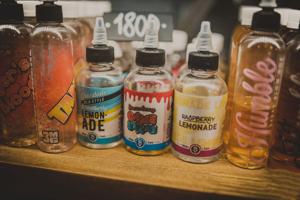Californians to vote on flavored tobacco ban referendum in 2022

In 2022, Californians will vote on a veto referendum to uphold or repeal a bill to ban the sale of flavored tobacco products. On Jan. 22, 2020, the secretary of state’s office confirmed that referendum petitioners submitted more signatures than the minimum requirement of 623,212.
SB 793 was written to go into effect on January 1, 2021, but with the veto referendum pending signature verification, the effective date was suspended. As the signatures for the veto referendum were certified, the law is suspended until voters decide the issue at the election on Nov. 8, 2022.
The California Coalition for Fairness is campaigning for the veto referendum to repeal SB 793. Through Jan. 1, 2021, the campaign had reported $21.2 million, including $10.4 million from R.J. Reynolds Tobacco Co. and $9.8 million from Philip Morris USA.
The contested legislation, Senate Bill 793 (SB 793), was passed in August 2020, and Gov. Gavin Newsom (D) signed the bill on Aug. 28. SB 793 was designed to ban the sale of flavored tobacco products and tobacco product flavor enhancers, with exceptions for hookah tobacco, loose-leaf tobacco, and premium cigars. Retailers would be fined $250 for each sale violating the law.
In the state Legislature, SB 793 received support from most Democrats (84 of 89) and a quarter of Republicans (8 of 30). One legislator voted against the bill, and the remaining legislators were absent or abstained. State Sen. Jerry Hill (D-13), the sponsor of SB 793, said, “Using candy, fruit and other alluring flavors, the tobacco industry weaponized its tactics to beguile a new generation into nicotine addiction while keeping longtime users hooked. SB 793 breaks Big Tobacco’s death grip.”
The California Fuels & Convenience Alliance, which opposed SB 793, described the flavored tobacco ban as “misguided policy that will do more harm than good” and “hurt small businesses, eliminate necessary tax revenue, and perpetuate dangerous and avoidable police interactions in our communities.”
If SB 793 had gone into effect on Jan. 1, California would have been the second state, after Massachusetts, to ban all flavored tobacco products, including menthol cigarettes. California would have been the fifth state to ban flavored e-cigarettes.
The ballot measure is not the first flavored tobacco ban veto referendum in California. In 2017, the San Francisco Board of Supervisors passed an ordinance that banned the sale of flavored tobacco. R.J. Reynolds Tobacco Company launched a veto referendum campaign to repeal the ordinance. The signature drive was successful, placing the ordinance on the ballot as Proposition E. Voters approved Proposition E, thus upholding the board’s ordinance; 68.4% voted to adopt the ordinance. R.J. Reynolds provided $12.9 million to the campaign to overturn the ban. The campaign to uphold the ban received $3.2 million, including $2.3 million from former New York City Mayor Michael Bloomberg.
The ballot measure is the 50th veto referendum in California since the veto referendum process was adopted in 1911. Of the 49 veto referendums that Californians have voted on, voters upheld 20 (41%) of the laws and repealed 29 (59%) of the laws. Voters last decided a veto referendum in 2020, when they repealed a law to replace cash bail with risk assessments for detained suspects.
Disclaimer: This content is distributed by The Center Square

